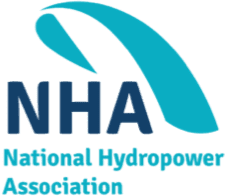Hydropower Receives Bipartisan Support from House Energy Subcommittee During License Reform Hearing
The hydropower industry, river conservation organizations and representatives from tribal communities testified on their joint hydropower licensing reform proposal, a result of the Uncommon Dialogue process, on Capitol Hill
Washington, D.C. (May 12) – Multiple stakeholders in the Conservation organizations, hydropower industry groups, and Tribes today testified to the U.S. House of Representatives Energy Subcommittee on their proposal to improve hydropower licensing, relicensing and license surrender processes. Specifically, the package proposes amendments to the Federal Power Act to enhance cooperation, improve clarity, restore autonomy and self-determination for Tribal Nations, and retain states’ decision-making authority. In doing so, the package would help address climate change, better protect the health of the nation’s rivers, and provide Tribes long-sought authority over their lands and waters.
Click here for an expanded summary of proposed changes.
Click here to view proposed FPA revisions
During his testimony, NHA’s CEO, Malcolm Woolf shared why this proposal is needed to be made into legislation now, saying, “Our nation is at a unique crest of a new wave of hydropower licensing and licensing surrenders. Roughly 30 percent of the non-federal fleet is up for re-licensing by 2030. That number soars to 45 percent by 2035. With re-licensing taking 7.6 years on average, the need for hydropower license reform has never been more urgent.”
Read Malcolm Woolf’s Full Testimony
During the hearing, CEO of American Rivers, Tom Kiernan, said, “The hydropower license reform package we are bringing to you today, as a collaboration, was born from the encouragement of this committee to seek common ground and find solutions. Our proposal is an extension of our shared goals – protecting rivers, strengthening tribal sovereignty, and generating renewable electricity that contributes to achieving a 21st century clean energy grid – this package is an integrated, holistic proposal that successfully creates common ground by bringing together the different perspectives of conservation, tribal, and industry constituency.”
Energy & Commerce Chairman, Representative Pallone (D-NJ) asked Mary Pavel, attorney for the Skokomish Tribe, “Do you think the Uncommon Dialogue’s proposal sufficiently empowers tribal nations to make decisions about the use of tribal lands, and how do we ensure that all tribal nations, including those without significant financial resources, or hydropower expertise, are able to participate in the hydropower licensing process?” To which Pavel said, “In short answer, yes, I think it goes far enough. One of the components of the proposal would be to create and provide resources for all land management agencies to do the work they need to relative to fed re-licensing and re-licensing projects, including tribal governments, so that’s important.”
The proposal received bipartisan support during the hearing with lawmakers expressing support for hydropower’s clean energy benefits, the Uncommon Dialogue process and the license reform proposal submitted to the Committee.
Representative Tonko (D-NY) said, “I want to commend the Uncommon Dialogue participants for finding agreement on this proposal. Last time this committee considered hydropower license reform it did not start from a place of broad stakeholder consensus and I truly believe that ultimately it hurt the legislative process as well as the final product, but these organizations have given us a strong foundation, and I hope they will continue to stand together and even expand the coalition as policy makers inevitably consider changes to the original proposal. Because hydropower is an incredibly important clean energy solution, one that has had strong bipartisan support on this committee, but like all energy infrastructure it needs to be developed and operated responsibly. An improved license process can indeed help ensure that.”
Representative Peters (D-CA) said, “I remember in our last discussion on this topic that the permit process is so unwieldy and unbounded o and I hope we can do something that provides more certainty, better timelines, better results and frankly, clean energy with environmental protection is our goal.”
Representative Kim Schrier (D-WA) said, “As we become more and more reliant on electricity and we want more of that electricity to be clean, hydropower plays a critical role and I want to extend my agreement with my colleague [Rep. Kuster] from Washington that adding generation to already existing dams would be a smart way to get more clean energy.”
On the other side of the aisle, Representative Bucshon (R-IN) said, “I support the development and expansion of hydropower in the U.S. as a part of an “all of the above” energy strategy.” When asking Malcolm Woolf about what this proposal would do for adding hydropower generation to existing non-powered dams, Woolf explained that the license timeline would start once a facility submitted their NOI and FERC approved it, streamlining the process to two years from the moment the application is submitted, Bucshon responded, “That’s great, I would be for that.”
Representative Pence (R-IN) expressed the need for an expedited licensing process to ensure hydropower projects remain economical, and said to his Subcommittee colleagues, “I would say to my peers across the aisle, come one, let’s figure out how to get this done and figure this out. You’re [Uncommon Dialogue participants] all doing a great job in working together as Ms. Pavel said. I think we’ve ought to move on with this.”
Click here to watch the archived webcast
##


